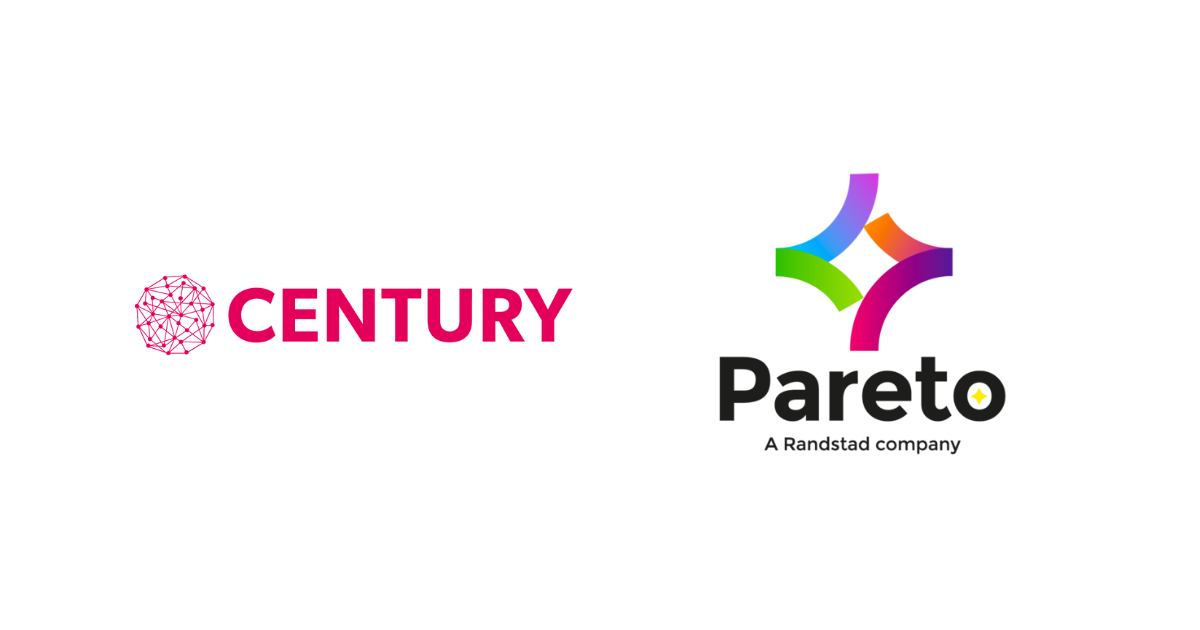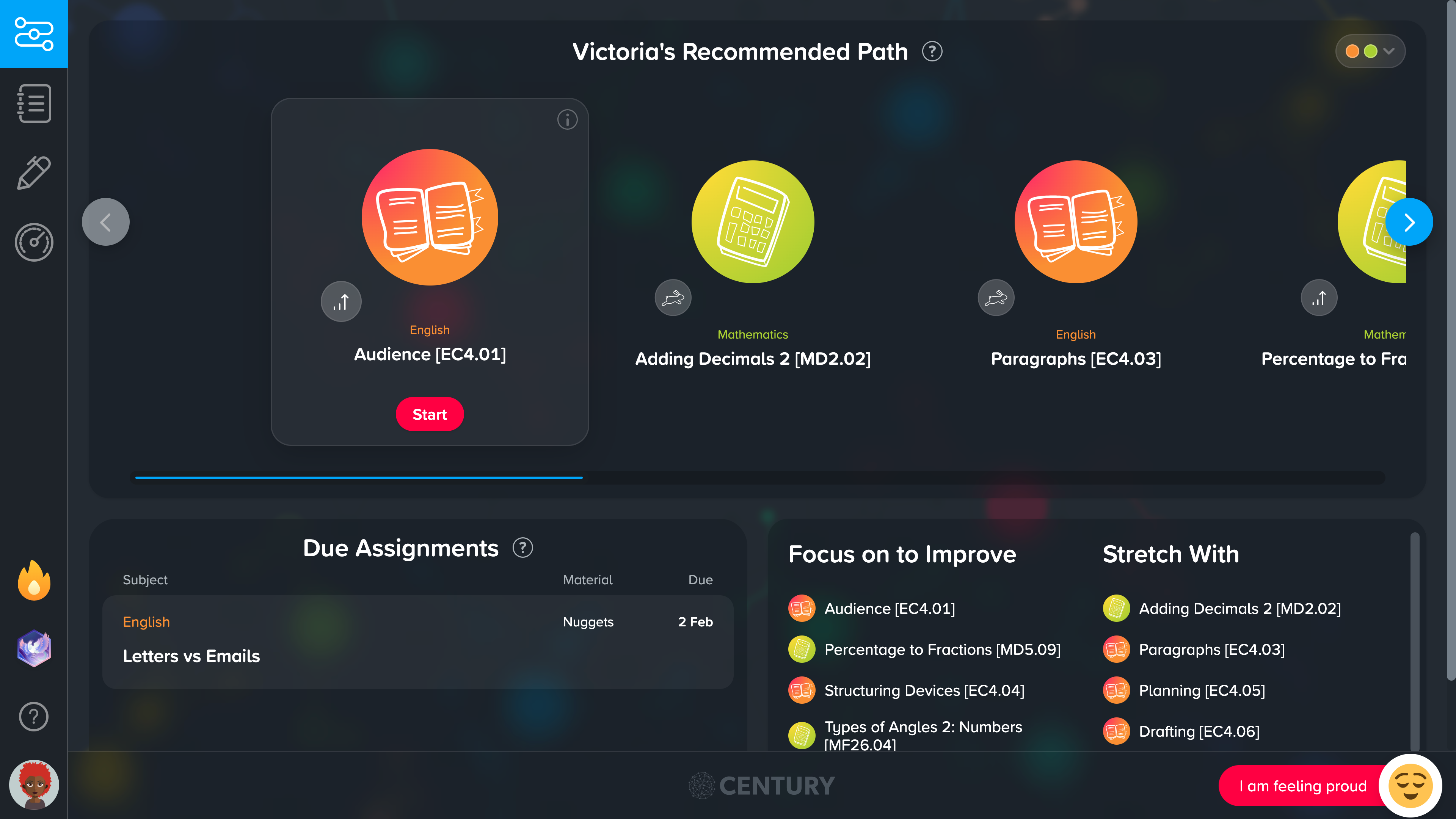How CENTURY has transformed English and maths provision at Pareto
Estimated reading time: 4 minutes

What made you consider CENTURY for your initial assessment and learning?
MR: We have quite a distinctive learner demographic at Pareto, primarily consisting of graduates. This presents certain challenges, particularly when they’ve already done a degree or a master’s program and we require them to undergo assessments in maths and English. While we do have some 16-18 year old learners, they constitute a minority.
To address the lack of engagement with our existing platform, we opted for CENTURY. There used to be a considerable reluctance surrounding the completion of initial assessments, subsequent diagnostics and learning activities.
How did you find the onboarding process?
MR: We worked with our account manager so we could build a cohort linked to each client. We had a range of different training sessions delivered by CENTURY to ensure buy-in across the wider business. The sales team session focussed on how to promote the benefits to our clients and learners as they are the first touch point. CENTURY were really good at working with us around our timeframes.
KS: I really liked the way we were drip fed information via email, so it wasn’t overwhelming. The whole site is really clear with the instructional videos and help pages. Having our account manager as a point of contact has made a massive difference. I can keep asking questions, not that I need to, but I know that I can. That support is really important; it feels like she’s part of the team.
How have the learners found the new initial assessment?
MR: Before we used to have a lot of disgruntlement from learners, but now there is a lot more enjoyment. That’s a huge positive thing for us, as they’ll be using CENTURY regardless of whether they need to do functional skills or have stretch and challenge around their existing knowledge.
KS: The results are very accurate to their actual ability, which is incredibly important for us. With previous platforms, the instructions weren’t clear and so learners may have completed the whole assessment with a calculator, resulting in an inaccurate level.
MR: It’s giving us a lot of confidence in the result, whereas before we might find it didn’t match up with their prior learning history. Now we’re getting much more accurate at identifying their levels and giving timeframes on their future achievements.
How does CENTURY help support that delivery model?
KS: We expect learners to use CENTURY to find out what they don’t know. It’s able to support the scheme of work as we’re able to see what they’re struggling with and therefore what our next session is going to focus on. CENTURY allows you to have a better understanding of the learner, about their personality and how they’re working.
What I love about CENTURY is the accountability that sits with the learner.
How have your learners found the transition to CENTURY?
KS: They absolutely love it. They like the fact it gives them immediate feedback. It’s engaging; it’s motivating. It makes the journey manageable for them. The Recommended Pathway makes it clear how much work they have to do. If we’ve got a strong learner, that Recommended Pathway could be five or six units. That’s what the learner wants to see. We can see early on if they’re on the right programme and we can put in methods of support, where necessary.
KS: We had a learner who came out with a lower level on their initial assessment and I thought it was too far to go. He asked me to give him two weeks to show what he could do and he managed to improve dramatically. This wouldn’t have been possible with our previous platform, but it is now with CENTURY.
How are your tutors finding the platform?
MR: One tutor has an IT background and she sets her students challenges to complete a nugget a day. She’s been working quite closely with our account manager as well. We also have somebody else who’s used CENTURY before, so it’s nice for us to learn from her experience.
Since transitioning to CENTURY, have you experienced any challenges?
MR: There was a real fear of having to learn a new system. Kate has immersed herself into it to be able to support everybody else. Adapting to a new system is the only real challenge but it has been absolutely the right choice for us.
What are your plans for CENTURY for the future?
MR: In our previous Ofsted inspection we got a solid good grading, but we definitely want to have that outstanding. Provision for learners who are exempt is one of the toughest things to showcase; we need to show that we’re getting them back up to that original grade and beyond.
KS: I want to create bespoke challenges for learners that are exempt. For these learners it’s about stretch and challenge and getting more elaborate punctuation into their writing. You have learners who haven’t had a lesson on semicolons and colons for 20 years and CENTURY has a range of nuggets to support this.
In summary, how have you found the move over CENTURY?
MR: It has been a total game changer adopting CENTURY into our business for the initial assessment and learning journey for our apprentices. It’s made something that a lot of learners have a fear of into something engaging and innovative. We love it!
To learn more about how to make CENTURY work for your ITP, click here.
CENTURY in the news
View all News
-
Case studies
3rd July 2025
Driving Progress with CENTURY at Middlesbrough College
“This is a massive improvement for an FE college in the northeast. This data is a clear indicator that if you’re using the platform, you’re making progress.” Middlesbrough College is in its third year of using the CENTURY platform. They…
Read more
-
Uncategorised
2nd July 2025
How CENTURY supports personalised learning, informs planning and reduces tutor workload…
Seymour McConnell runs McConnell's Tuition, an online tutoring company providing Maths, English and Science sessions for students from Year 1 to Year 11. Initially operating from a community centre, since the COVID-19 pandemic they have moved entirely online and now…
Read more



